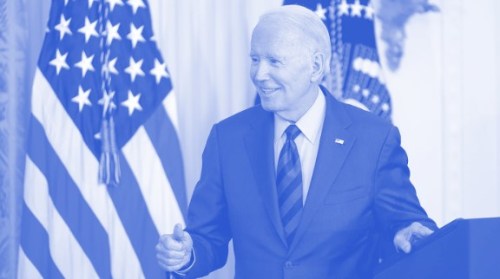How conflict in Gaza could affect votes in swing states
- Harris will need to smooth over voters against the war in Gaza, experts say
- Gaza issue is significant in swing states like Michigan and Pennsylvania
- Voters not satisfied about Gaza approach could stay home in November
- Harris will need to smooth over voters against the war in Gaza, experts say
- Gaza issue is significant in swing states like Michigan and Pennsylvania
- Voters not satisfied about Gaza approach could stay home in November
(NewsNation) — U.S support of Israel’s war in Gaza could prove to be a significant driver of how swing state voters show up at the polls this November.
Frustrated by President Biden’s support of Israel, some voters opposing his policy pushed back against the president when he was running as the Democratic nominee.
But with Vice President Harris taking the reins, some political experts say she could have an opportunity to smooth over those voters, particularly in critical swing states that have historically been taken by razor thin margins.
“In states like Pennsylvania, Michigan, Wisconsin, that have been decided on the margin in elections in both 2016 and 2020, modest changes in the electorate could have enormous impacts,” Chris Borick, professor of political science at Muhlenberg College and director of the college’s Institute of Public Opinion, told NewsNation.
“In the case of Gaza and the situation with Israel, there’s a segment of the population in all those states that view this issue in a very salient manner.”
The issue in Gaza could affect voter turnout
Voters who disapprove of the administration’s handling of the conflict in Gaza may be the much-needed margin Harris will need in swing states.
That is, if they show up.
“The outcome is expected to be close, as most presidential elections recently have been, and the success of one candidate will depend, in large extent, on turnout,” Michael Traugott, a professor of political science at the University of Michigan, said.

For voters who care deeply about what is happening in Gaza and disapprove of the current administration’s response, “the concern isn’t that they will vote for Donald Trump, it’s more that they will stay home and that could have an effect in overall proportion of votes,” he said.
In Michigan, the issue in Gaza is of “great concern” to the state’s large Arab American and Muslim population, and it will be significant in terms of turnout and mobilization during the election, he said.
Many of the movements taking against the war had reflected an absolute rejection of President Biden’s stance and, thereby, his nomination, and while Harris is not going to strike an extremely different position being a part of his administration, she will try to be more nuanced in her statements, he said.
Movements building swing states
Protests have erupted across the country by those opposing the war, which also includes movements instructing voters to hold their vote in protest.
More than 650,000 Democrats voted against Biden when he was running by choosing options such as “uncommitted,” with others protesting in other states through write-ins, blank ballots, votes for other candidates and other means, reported Politico.
Thirty uncommitted delegates are expected to attend the Democratic National convention next week to try to convince Harris delegates to join them in pressuring the party to include a cease-fire in the convention platform.
The movement received more than 101,000 uncommitted votes in the Democratic presidential primary in Michigan and 47,800 votes in Wisconsin.
In 2020, Biden won by about similar margins, taking 154,000 more votes in Michigan, 20,600 in Wisconsin and about 80,000 in Pennsylvania over former President Trump.
Harris appears to recognize that thin line, sending an official from her campaign to Michigan this week to meet with Arab American and Muslim leaders who continue to insist the U.S. government demand an Israeli-Hamas cease-fire in Gaza, reported The Detroit Free Press.
She has also pivoted in taking a more nuanced tone on Gaza.
“I have been clear: now is the time to get a cease-fire deal and get the hostage deal done,” Harris told pro-Palestine protesters who interrupted her campaign rally in Arizona this week.
After meeting with Israeli Prime Minister Benjamin Netanyahu last month, Harris delivered a televised statement that maintained her “unwavering commitment” to Israel and its right to “defend itself” but also addressed the large-scale humanitarian crisis.
“The images of dead children and desperate, hungry people fleeing for safety — sometimes displaced for the second, third or fourth time — we cannot look away in the face of these tragedies. We cannot allow ourselves to become numb to the suffering, and I will not be silent.”
Balancing Pro-Palestine and Jewish voters
Although Harris is a part of the current administration, she is not Biden and has a bit of a “restart on this issue,” Borick said.
“She has opportunities as the Democratic candidate on this issue that Joe Biden simply wouldn’t because he’s seen as the face of American policy in the reaction to what happened in October and to the subsequent issue involvement in Gaza.”
But she will have to do a delicate “dance” to keep the larger Democratic coalition together, which includes Jewish voters who are also concerned about Harris’ commitment to Israel, he said.
This could certainly come into play in Pennsylvania, which has a fairly significant Jewish population, as her stance in Israel may affect their likelihood of voting, he added.

The issue of Gaza has divided the Democratic coalition in Pennsylvania, Borick said.
Pennsylvania Gov. Josh Shapiro (D), who is largely popular in the state, came under fire by progressives for his comments on some pro-Palestinian protests and also for his support of a bill that would punish colleges and universities that boycott Israel or make financial decisions to penalize that country, reported The Patriot-News.
But it also angered some voters who believed Shapiro was passed over as Harris’ choice for vice president due to his Jewish faith. Borick said it’s unlikely those voters would turn away from Harris based on that belief alone.
“In a place like Pennsylvania that’s won and lost on the margins, you don’t have a lot of margin of error to work with, so I think this is going to be a challenge for Harris to navigate this issue amongst a group of voters who really care about this,” Borick said.
Copyright 2023 Nexstar Media Inc. All rights reserved. This material may not be published, broadcast, rewritten, or redistributed.





